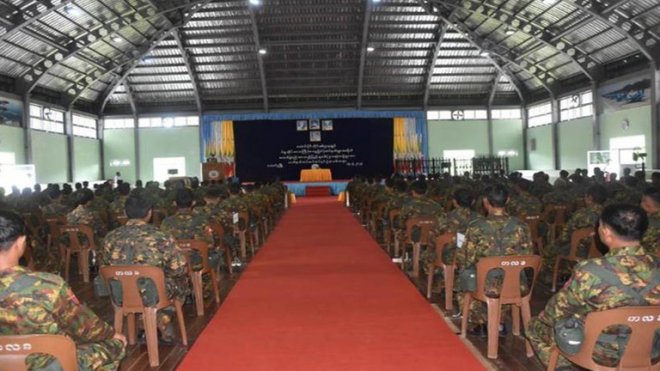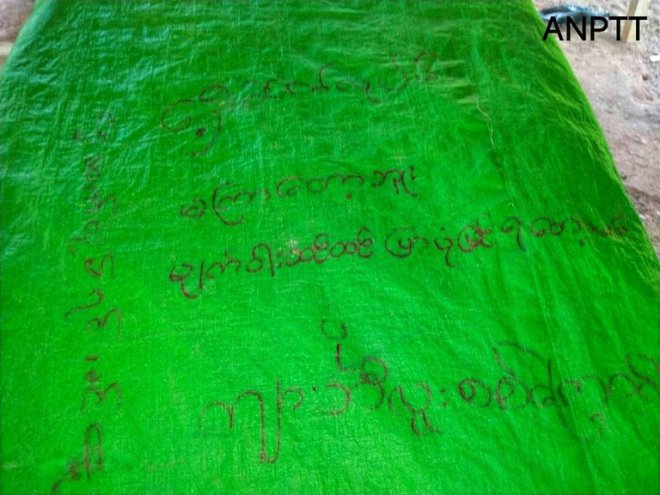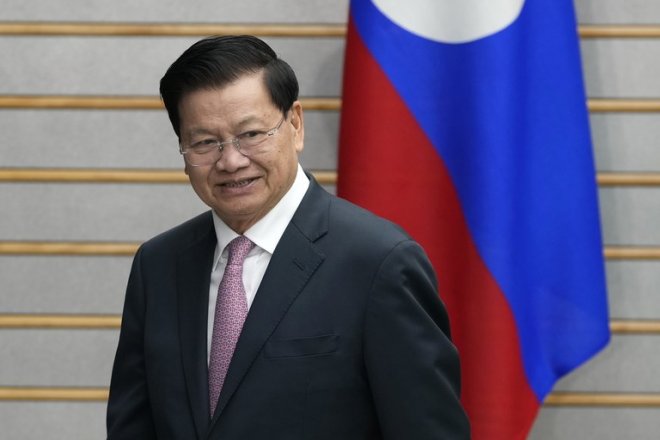Police harassing woman who danced for Tiananmen massacre anniversary
A woman who uploaded a short video of herself doing a hand dance to the social media platform WeChat in which she mimes a reference to the 1989 Tiananmen massacre is being harassed by Chinese authorities, according to her social media posts and a friend who has spoken with her.Huang Zhihong, who goes by the username Poinsettia, is suffering from deteriorating mental health amid constant surveillance by police in the southern province of Guangdong, said her friend Wang Zhihua, who now lives in New York and who recently spoke with her via video call.
In the video, Huang is dressed in black and performs a graceful "hand dance" to a mournful background track.
A couple of times during the dance, her hands form the hand signals – often used by street vendors and in regular conversation – to denote the numbers 6 and 4, a reference to the date of the June 4, 1989, massacre of unarmed civilians by the People"s Liberation Army with machine guns and tanks.
Public commemoration of the massacre is banned in mainland China, while an annual candlelight vigil that used to mark the anniversary in Hong Kong"s Victoria Park has fallen silent after more than three decades, its leaders in prison under a draconian national security law used to crack down on public dissent.
Huang first made the video to mark the anniversary of the massacre in 2021, and uploaded it to WeChat Moments, where it was soon deleted by government censors.
Later, it started appearing on overseas sites not controlled by the Chinese Communist Party, and was posted again to YouTube on June 5, 2022, where it was also picked up by the U.S.-based China Digital Times website.
Unwanted attention
Police started stepping up their surveillance and harassment of Huang after her video dance was reposted to Twitter by the U.S.-based former 1989 student leader Zhou Fengsuo on Sept. 15, 2022, her friends said.
"I seem to have brought disaster down on her," Zhou told Radio Free Asia, adding that he had also messaged Huang to thank her for the video last year.
"They detained her because it was a very sensitive matter," Wang said. "The police seemed to think she had been colluding with foreign forces. But they didn"t get any evidence of that even after 24 hours of interrogation," he said.
But because Huang told police that she had never even heard of Zhou, and that he had initiated contact, not her, she was released by police on that occasion, he said.
"Since then, they have harassed her, called her in to "drink tea", but the most terrifying thing has been the stalking," Wang said. "They park their police car in front of her shop and stand watching her, causing her mental health problems."
Depressed
He said Huang and her 12-year-old daughter are now both suffering from depression due to fears for their safety and that of their family.
Huang has repeatedly declined to respond to media requests out of concern for her personal safety amid ongoing police harassment, and didn"t respond to Radio Free Asia"s attempts to reach out for comment on this article.
She wrote in a post to WeChat moments in April that she had been approached by local police and questioned soon after receiving her daughter’s newly applied-for passport, according to a screenshot of the post shared by another U.S.-based friend of Huang’s, Xiyan.
Police told her at that time that they regarded her as “unpatriotic,” and said it was in their power to decide whether to let her leave China, as Xiyan already had, the post said.
According to Wang, Huang once described herself as "not a brave person – I just naturally like to dance."
But he said the effect on her mental health has been clear to see.
"She cries the whole time," he said. "Whenever we video call, she cries."
"She complains to me, as her good friend," Wang said, adding that long-term surveillance by the local police had left Huang physically and mentally exhausted.
According to Huang"s friends, she made the video to "express her condolences" after reading about the massacre anniversary online, and without rehearsal.
"It was on the spur of the moment, triggered by the candlelight vigils and commemoration on June 4, and it just felt natural for her to dance it that way," Wang said, citing Huang"s account of the video.
"It looks very natural, with just a piece of cloth hung as a background, and I think that really touched a lot of people," he said.
Renewed popularity
Despite the trouble it has brought her, Huang"s dance enjoyed another spike in popularity on Twitter earlier this month, around the 34th anniversary of the massacre.
A tweet linking to the video posted by Twitter user @Huaxianzi999 on June 4, 2023 garnered 200,000 views, 434 retweets and 1,426 likes.
Another U.S.-based friend of Huang"s who gave only the nickname Xiyan for fear of reprisals against loved ones back home said she had been "shocked" at the video when she first saw it.
"Later, we talked on the phone, and she said the video had been deleted," Xiyan said. "She didn"t have any particular intent in mind – she just wanted to express herself in that way."
U.S.-based activist Chen Xiangwei – who also knows Huang – said he had warned her the video could have safety implications for her.
"A lot of people feel this way, not quite right in themselves because they"re not allowed to speak out," Chen said. "A lot of my online friends like to speak up for justice on behalf of ordinary people – their existence gives us a lot of hope for this country."
Translated by Luisetta Mudie. Edited by Malcolm Foster.
[圖擷取自網路,如有疑問請私訊]
|
本篇 |
不想錯過? 請追蹤FB專頁! |
| 喜歡這篇嗎?快分享吧! |
相關文章
AsianNewsCast























